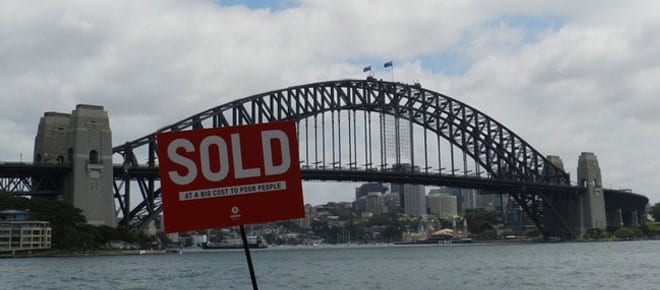A modern day land rush

Investors are targeting the world’s weakest-governed countries to buy land, according to new analysis published by Oxfam to mark today’s international day of action on land grabs. Oxfam’s GROW campaign is calling on the World Bank to lead the fight against land grabs.
The analysis reveals that over three quarters of the 56 countries where land deals were agreed between 2000 and 2011 scored below average on four key governance indicators. The 23 least developed countries account for more than half of the recorded land deals over this period.
“Poor governance is good business for investors looking to secure land quickly and cheaply,” said Jeremy Hobbs, Executive Director of Oxfam. “Investors seem to be cherry-picking countries with weak rules and regulations because they are ‘easy marks’. This can spell disaster for communities if these deals result in their homes and livelihoods being snatched away without consent or compensation.”
The research cross referenced data from the Land Matrix – a database of reported agricultural land deals involving 200 hectares or more of land – with World Bank indicators that measure how well a country is governed. The indicators assess a range of factors including voice and accountability (e.g. whether citizens participate in selecting their government), rule of law, the quality of private sector regulation, and control of corruption.
The analysis found that the average score across four key governance indicators in countries with land deals was 30 per cent lower than those without deals.
In a number of cases the potential area of land available for investment does not appear to be a significant factor. For example Guatemala, which scores below average on all four governance indicators, has seen 87,000 hectares of land change hands in the last ten years despite high levels of hunger and malnutrition in rural areas. In contrast, Botswana, which has a similar area of land available per head of population but which scores well above the average on governance indicators, did not reportedly agree a single large-scale land deal.
Oxfam’s analysis is supported by the World Bank’s own research.
During today’s day of international action on land grabs, iconic sites around the world, including the Sydney Opera House and Harbour Bridge, will be symbolically “sold” by campaigners.
Oxfam is calling on the World Bank to temporarily freeze land investments so that it can ensure its policies do not encourage land grabs. The Bank is in a unique position to act because it sets international standards for land investments, provides finance for land deals and advises developing countries on land investments.
“Getting a grip on the modern day land rush, which sees an area the size of London sold off to foreign investors every six days, must be top of the Bank’s agenda,” said Hobbs.



